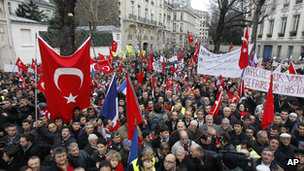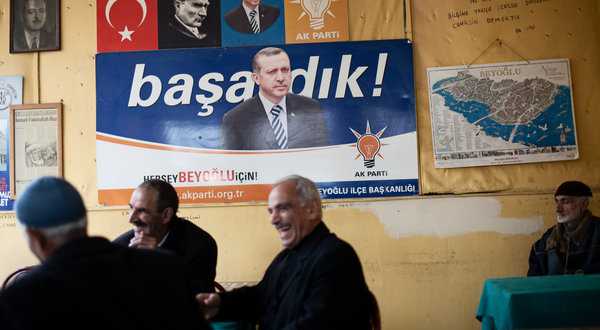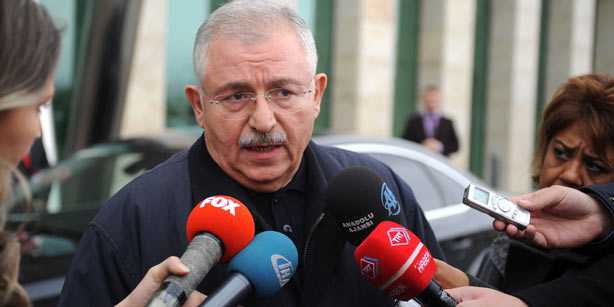As the French Senate rushes to consider a bill that would penalise denial of the massacre of over 1 million Armenians by the Ottoman Empire, Turkey is lobbying to stop the effort, warning of economic consequences.
 The Senate is set to vote by the end of January on a bill that would make it illegal to deny that the 1915 mass killing of Armenians by Ottoman Turks amounted to genocide, Turkish and French news media reported yesterday (4 January), quoting parliamentary and government sources.
The Senate is set to vote by the end of January on a bill that would make it illegal to deny that the 1915 mass killing of Armenians by Ottoman Turks amounted to genocide, Turkish and French news media reported yesterday (4 January), quoting parliamentary and government sources.
The French National Assembly voted in favour last month of a bill that would penalise denial of the Armenian massacre by a maximum one-year prison sentence and a €45,000 fine. The punishment would be on par with denial of the Holocaust.
This led Ankara to cancel all economic, political and military meetings with Paris and to recall its ambassador for consultations. Turkish Prime Minister Recep Tayyip Erdoğan hit back at France, denouncing 45,000 Algerian deaths in 1945, at that time under French rule, as well as the alleged role of France in the massacre of 800,000 people in Rwanda in 1994.
Turkey rejects qualifying the killings as “genocide” in the same category as the Jewish Holocaust. Ankara also says the Turkish republic founded in 1922 shouldn’t be held responsible for actions of Ottoman rulers, and inisists that the issue should be left to historians.
Supporters of the bill want to see the legislation approved before parliament adjourns at the end of February ahead of presidential elections in April and May.
Final hearings
In the meantime, Turkey indicated that it would use the time available to lobby against the legislation, the daily Zaman reported. The Turkish ambassador to France is expected to return in Paris anytime soon, and is to attend hearings on the bill in the Senate.
Legal experts, officials from Turkish and Armenian groups and the Turkish and Armenian ambassadors to Paris are also expected to be present.
Despite earlier angry calls for a boycott of French goods, Finance Minister Mehmet Şimşek said Ankara would not launch a pressure campaign.
But Many Turks reportedly said they would not buy French goods, and a businessman reportedly set up a €1-million fund from which fines for genocide denial would be paid.
Turkish economic experts say the genocide legislation could be detrimental for the French economic interest in Turkey, mainly for the public contracts. Turkey’s adoption of the EU’s environmental policies is opening huge market opportunities for the French companies. Together with other opportunities in energy, transport, defence and aviation, almost €100 billion worth of market activity is now becoming difficult to access for the French companies because the country’s image and credibility in Turkey are getting negative, a Turkish expert told EurActiv.
Positions:
Bahadir Kaleagasi, president of the Paris-based Bosphorus Institute, told EurActiv that he saw a link between the push by “some French politicians” for the bill, and the presidential elections in April and May.
“It is interesting to observe that a great majority of the French media and public are against this move that they judge as a political manipulation harming the freedom of expression and the democratic credentials of France.”
Kaleagasi said the Armenia massacres could not be put into the same basket as the genocide of the Jews.
“This [bill] criminalises the ongoing historical research and opening of the archives of all the countries involved in the First World War to enlighten all aspects of the ethnic violence and human tragedies of the same era. This project of the bill undermines also Turkey’s current public debate for a better reconciliation with the history and Armenia. France could have played a constructive role in this process. Moreover, the French attitude is perceived by the Turkish population as hostile. It is really pity, because there were no tangible conflicts between two countries which have great joint interests in an increasingly challenging global economic and political context,” Kalegasi said.
“The so-called Armenian genocide problems” cannot be resolved by a vote in the French Parliament, Ramazan Gözen from the Abant İzzet Baysal University argues in a commentary published by the daily Zaman.
“If the aim of the French National Assembly is to politically isolate Turkey, tear it away from the EU and put pressure on its foreign policy – if there is such a deep scheme behind all that manoeuvring – the country to be harmed the most is firstly France. The signals of that have already been seen in the international media. The world media have come up with views that France’s move will draw reactions from almost all countries, Turkey in particular,” Gözen writes.
Turkey has fallen in Sarkozy’s trap, writes Etyen Mahçupyan, chief editor of the Armenian daily Agos, in a commentary published by the French website Mediapart.
According to Mahçupyan, the French president aims at provoking the authorities in Ankara to a response out of proportion, which would ultimately dishonour Turkey.
The author advises that instead of overreacting, Turkey should show France that its stands on higher ground. The Turkish prime minister could even make a statement and offer French tourists discount prices, he writes.
via Turkey pressures France to stop Armenian genocide bill | EurActiv.





